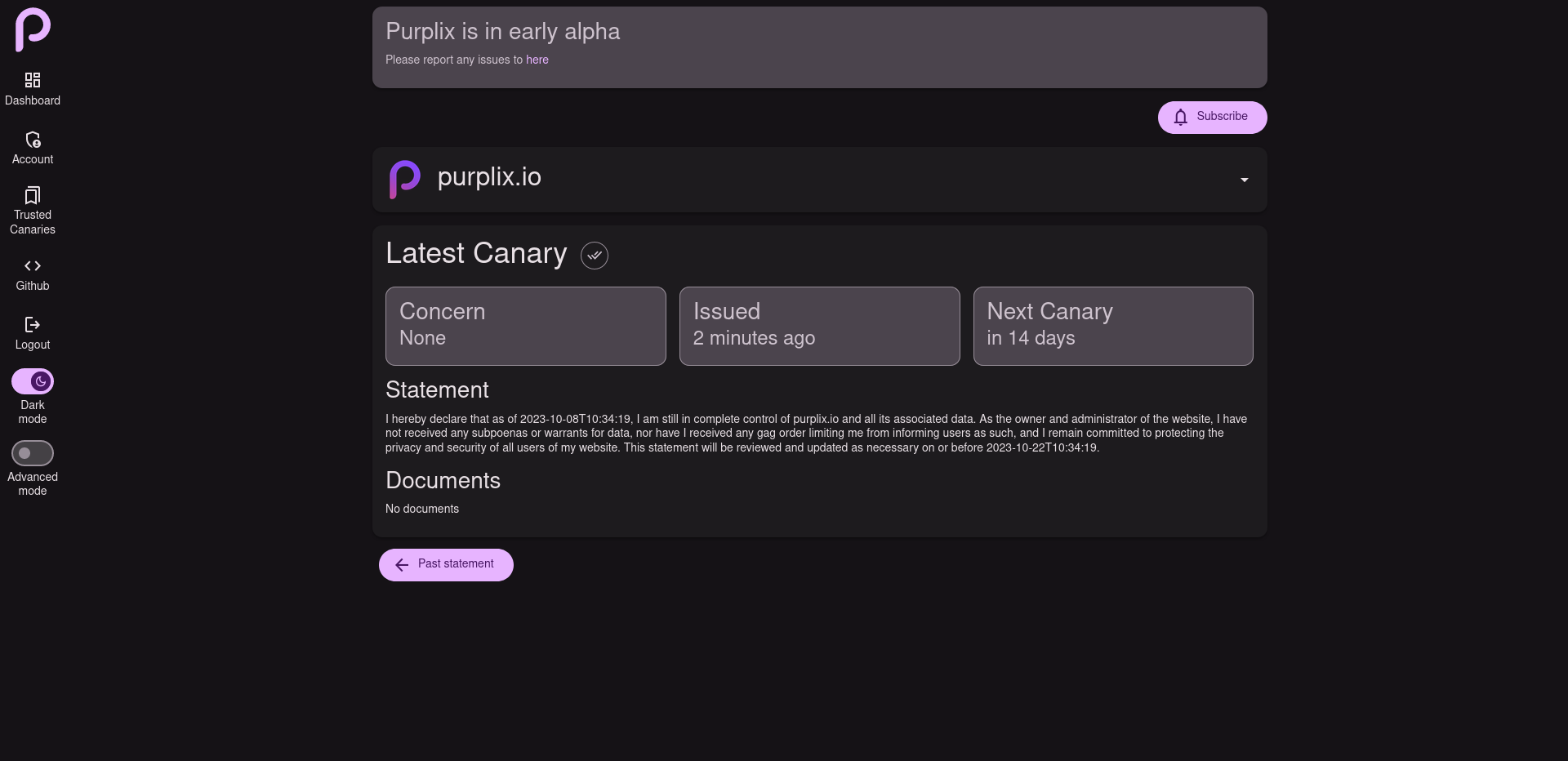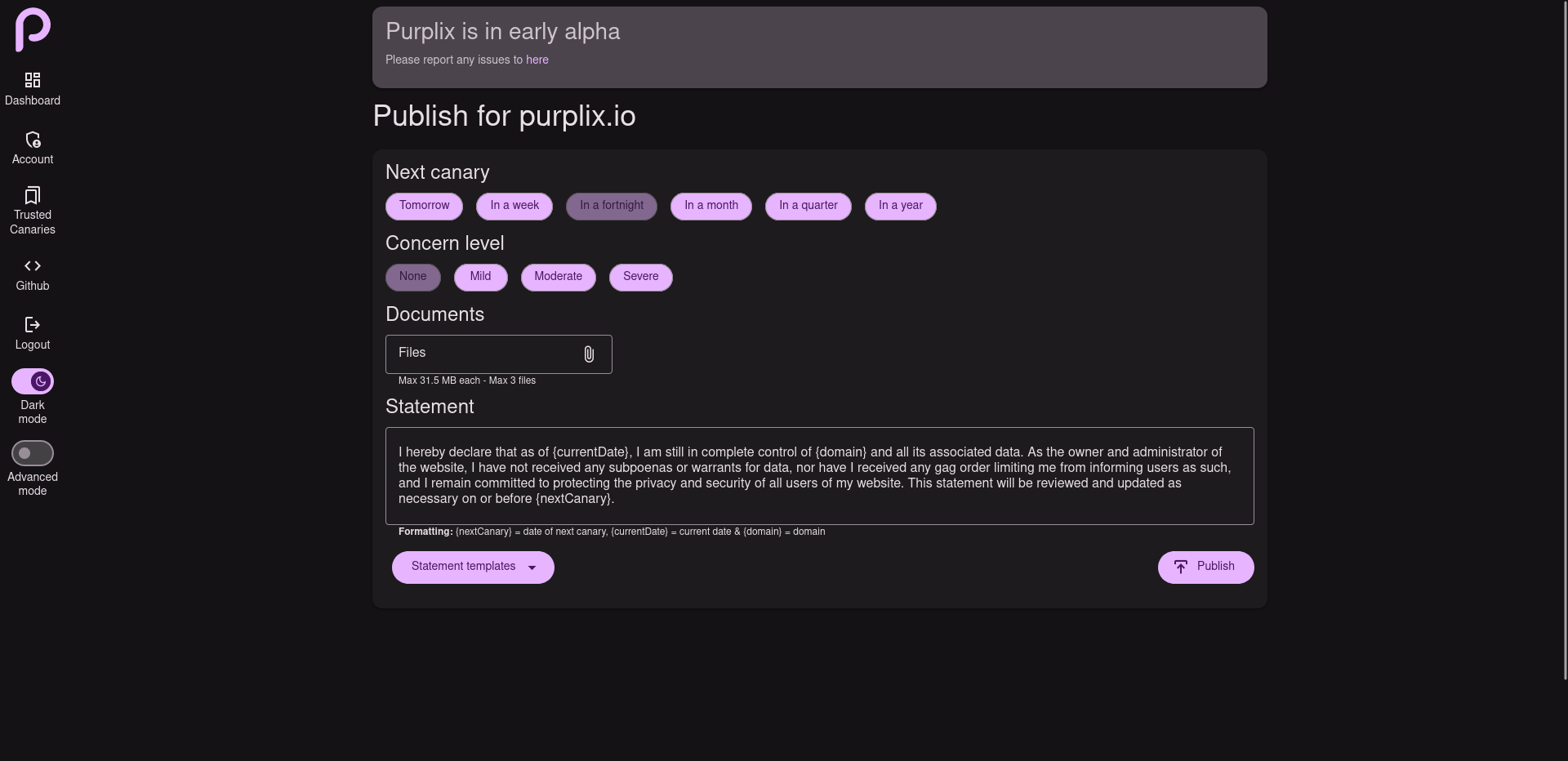Github: https://github.com/WardPearce/Purplix.io
View our canary: https://purplix.io/c/purplix.io/3ZjhTlZRWv8iqa6sn9yJ3TRiIkVbwITOOlwLjJD36jQ
What is Purplix Canary?
Purplix Canary is a free & open source warrant canary tool what helps you to build trust with your users.
It allows you to inform users cryptographically if your site has been compromised, seized or raided by anyone.
How does it work?
Site verification
Purplix uses DNS records to verify the domain the canary is for, giving your users confidence they are trusting the right people.
Canary signatures
Each domain is associated with a unique key pair. The private key is generated locally and securely stored within the owner’s keychain. When a user visits a canary from a specific domain for the first time, their private key is used to sign the public key. This signed version of the public key is then automatically employed for subsequent visits, effectively mitigating man-in-the-middle attacks and ensuring the trustworthiness of canary statements from the respective domain.
Files
Canaries can include signed documents to help users further understand a situation.
Notifications
Users are automatically notified on the event of a new statement being published.





Yes, most of those points are the concerns with warrant canaries. So far as we know the concept is totally untested in court so it’s hard to say what the result would be until it happens.
Updating the canary should require a human input (like a password to unlock the GPG key), which is not sometime the government would generally get access to (they make a request for data about XYZ user, and the company turns it over; they wouldn’t get actual access to the production system). The government could seek a ruling to force the company to update the canary, but as such a thing hasn’t been granted before (at least as far as we know), it’s not a guarantee. So, there is a chance that the warrant canary will serve to alert users to something happening, which is better than nothing. But because of its untested nature, it might be broken by a court.
I’m not sure I understand your point about “once it’s triggered it can’t be reset.” If a company fails to update their canary on schedule it means something happened that they can’t disclose. Once they are released from the NDA they can release a new canary explaining what happened.
Wikipedia does claim that patriot act subpeonas can penalise any disclosure of the subpeona. But i am not a lawyer, and afaik this is untested (or at least undisclosed :/ )
https://en.m.wikipedia.org/wiki/Warrant_canary
I think my point is that a gag order with a long time out essentially kills the canary, even if it doesnt affect the vast majority of the services users.
Thanks for your response though, I appreciate the additional information.